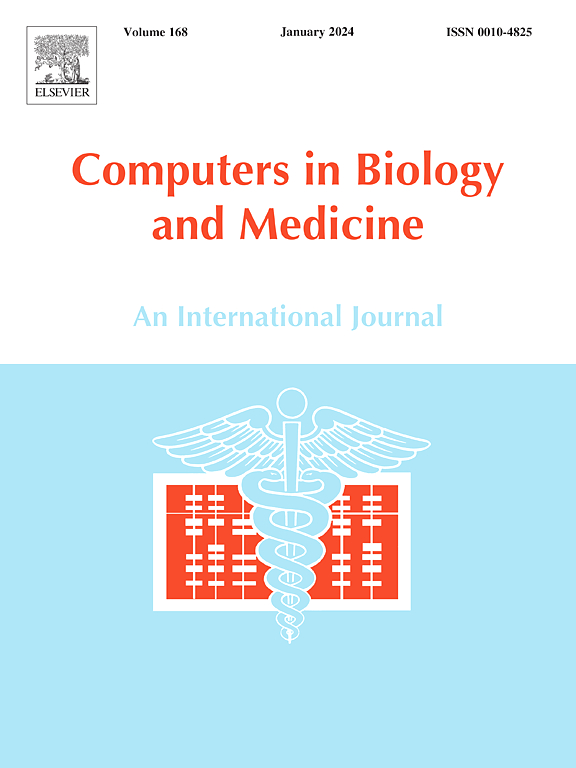Adaptive motor unit decomposition using a cross-validation-based update policy
IF 7
2区 医学
Q1 BIOLOGY
引用次数: 0
Abstract
Extraction of motor unit (MU) information from electromyographic (EMG) signals has shown promise in neurophysiology and rehabilitation. However, the low accuracy of MU spike train firing information remains a major issue when the signals have stochastic variations. The objective of this study was to develop a new adaptive MU spike train decomposition algorithm with a deterministic pool of MU spike trains update policy. We first identified common MU spike trains, which were proven to be accurate, from two groups of concurrently recorded EMG signals. We then updated the common pool of MU spike trains with a flag policy, when we periodically updated the MU spike train separation matrix, which could add newly identified MU spike trains and remove inaccurate MU spike trains from the MU spike train pool. The flags of individual MU spike trains captured the consistency of MU active state and the likelihood of being extracted by the decomposition algorithm repetitively. We systematically evaluated the new algorithm on simulated datasets with 1-h pseudorandom activation levels under various conditions, including different degrees of amplitude drift of action potentials, different rates of MU rotation, and different levels of signal-to-noise ratios. The results demonstrated that our adaptive algorithm could identify and retain MU spike trains with 28 % higher accuracy compared with the conventional decomposition method. We also found consistently high decomposition accuracy across various signal conditions. These findings highlight the robustness of our decomposition approach. The outcomes have the potential to enhance neural decoding performance and could be applied to different scenarios, such as evaluating neurophysiological mechanisms during sustained muscle activations and assessing motor recovery during rehabilitation.
使用基于交叉验证的更新策略的自适应运动单元分解
从肌电图(EMG)信号中提取运动单元(MU)信息在神经生理学和康复治疗中显示出前景。然而,当信号具有随机变化时,MU脉冲序列发射信息的精度低仍然是一个主要问题。本研究的目的是开发一种新的自适应MU尖峰列分解算法,该算法具有确定的MU尖峰列更新策略池。我们首先从两组同时记录的肌电信号中确定了共同的MU尖峰序列,这被证明是准确的。然后,当我们定期更新MU尖峰列车分离矩阵时,我们用一个标志策略更新MU尖峰列车的公共池,这可以增加新识别的MU尖峰列车,并从MU尖峰列车池中删除不准确的MU尖峰列车。单个MU尖峰序列的标记捕获了MU活动状态的一致性和被分解算法重复提取的可能性。我们在具有1小时伪随机激活水平的模拟数据集上系统地评估了新算法在不同条件下的有效性,包括不同程度的动作电位振幅漂移、不同的MU旋转速率和不同水平的信噪比。结果表明,与传统的分解方法相比,我们的自适应算法可以识别和保留MU尖峰序列,准确率提高28%。我们还发现,在各种信号条件下,分解精度始终很高。这些发现突出了我们的分解方法的健壮性。这些结果有可能提高神经解码性能,并可应用于不同的场景,例如评估持续肌肉激活期间的神经生理机制和评估康复期间的运动恢复。
本文章由计算机程序翻译,如有差异,请以英文原文为准。
求助全文
约1分钟内获得全文
求助全文
来源期刊

Computers in biology and medicine
工程技术-工程:生物医学
CiteScore
11.70
自引率
10.40%
发文量
1086
审稿时长
74 days
期刊介绍:
Computers in Biology and Medicine is an international forum for sharing groundbreaking advancements in the use of computers in bioscience and medicine. This journal serves as a medium for communicating essential research, instruction, ideas, and information regarding the rapidly evolving field of computer applications in these domains. By encouraging the exchange of knowledge, we aim to facilitate progress and innovation in the utilization of computers in biology and medicine.
 求助内容:
求助内容: 应助结果提醒方式:
应助结果提醒方式:


